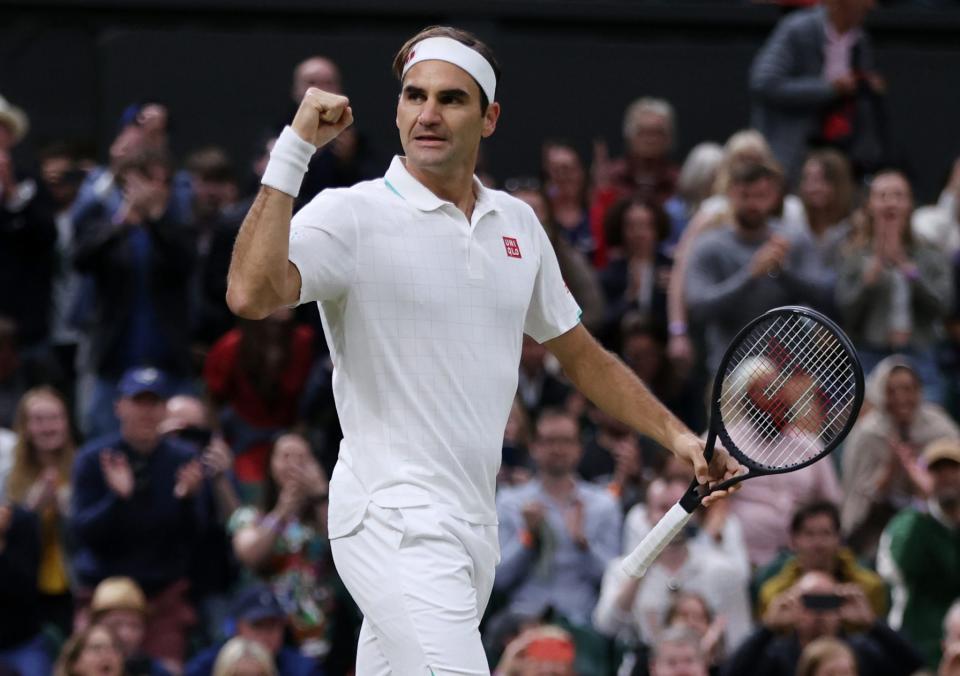Roger Federer tells Dartmouth grads that talent will only get them so far, and they need to learn to deal with losing again and again

“You can work harder than you thought possible and still lose.” That’s one of the many tough lessons that legendary tennis star Roger Federer just told the 2024 graduating class of Dartmouth College.
Despite looking like a complete natural on the tennis court, the 20-time Grand Slam winner warned Gen Z grads that talent alone only gets you so far—and even when you think you’re at the top of your game, it can all come crumbling down.
“The truth is I had to work very hard to make it look easy,” Federer said in his commencement address while receiving a Doctor of Humane Letters degree from the New Hampshire institution.
Roger Federer’s Commencement Address at Dartmouth yesterday might be the best speech he’s ever given.
Amazingly articulate, funny, full of wisdom. Made me laugh and tear up. I’m so very proud to have had him as my idol for the past two decades.
If you have 25 minutes to spare… pic.twitter.com/qfd9io9kzV
— Bastien Fachan (@BastienFachan) June 10, 2024
“I spent years whining, swearing, throwing my racket before I learned to keep my cool,” he said, adding that the peers you envy who look like they’re easily “racking up A after A without even trying” are probably putting the work in behind the scenes.
Ultimately, nothing is ever as easy as it looks—not least the one-handed backhand that Federer is famous for—and that’s true for everyone.
“I didn't get where I got on pure talent alone. I got there by trying to outwork my opponents,” he added. "Most of the time, it's not about having a gift. It's about having grit."
Don’t dwell on every shot
The 42-year-old spent 310 weeks ranked world No. 1 in his career and won Wimbledon eight times, before “graduating” from tennis in 2022.
In the two-plus decades of his professional career, Federer won nearly 80% of his matches. But when broken down by point by point, his percentage of wins drops down to 54%.
“In other words, even top-ranked tennis players win barely more than half of the points they play,” he said.
It’s why Gen Z grads need to get better at losing—or rather, picking themselves up after setbacks—because it’s not a missed shot that’ll cost you the game, but not being able to move past it to focus on your next win.
Take Federer’s 2008 final match against Rafael Nadal: Looking back, Federer admitted that Nadal won the game from the “very first point of the match” because he—having been “crushed” by Nadal a few weeks earlier—still felt defeated by the prior loss.
“The truth is whatever game you play in life, sometimes you're going to lose a point, a match, a season, a job,” he said. “But negative energy is wasted energy. You want to become a master at overcoming hard moments. That is to me the sign of a champion.”
“The best in the world are not the best because they win every point. It's because they know they'll lose again and again and have learned how to deal with it,” he concluded. “You accept it, cry it out if you need to, and then force a smile.”
Don’t assume success will come easily thanks to your degree
Federer also warned those attending Ivy League schools not to expect automatic success thanks to their prestigious qualification.
“Some people are going to assume that because you graduated from Dartmouth, it all is going to come easy for you, and you know what? Let them believe that as long as you don't,” he said.
Unfortunately for those saddled with student debt, not even the best universities in the world come with the guarantee of a distinguished career off the back of it—and Federer’s not the first to warn grads that.
Nvidia’s CEO Jensen Huang echoed to Stanford Gen Z students that they’ll need to lower their expectations and graft hard if they want to make it big one day.
“People with very high expectations have very low resilience—and unfortunately, resilience matters in success,” Huang said. “One of my great advantages is that I have very low expectations.”
“Greatness comes from character and character isn’t formed out of smart people—it’s formed out of people who suffered.”
Meanwhile, Amazon’s CEO Andy Jassy admitted that having a can-do attitude has a bigger impact on whether or not you have a thriving career, than the number of qualifications to your name.
“An embarrassing amount of how well you do, particularly in your twenties, has to do with attitude,” Jassy said.
This story was originally featured on Fortune.com

 Yahoo Finance
Yahoo Finance 